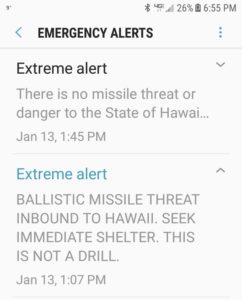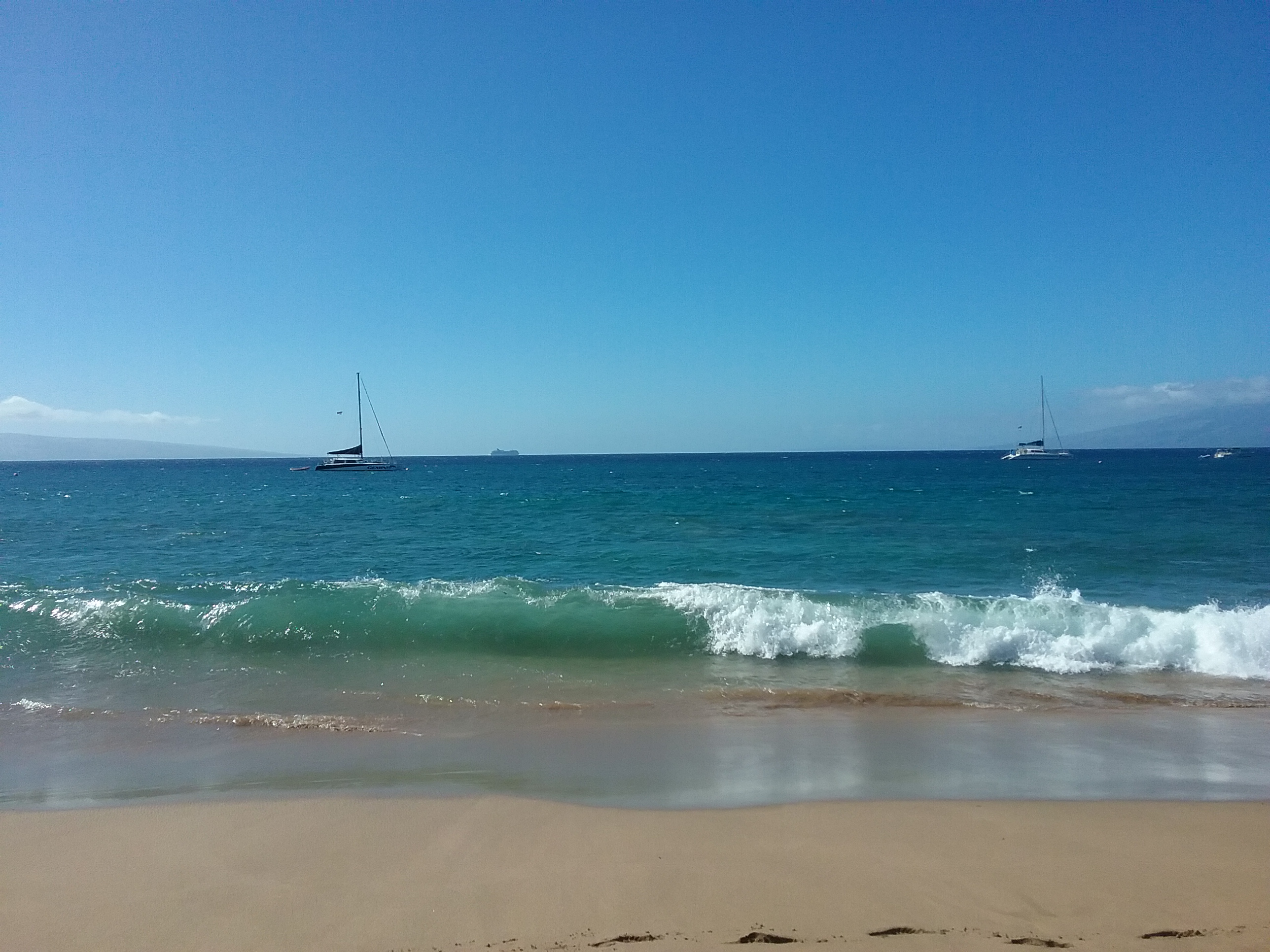Imagine waking up on the island of Maui, seemingly a paradise, to a screeching alert on your phone that says, “BALLISTIC MISSILE THREAT INBOUND TO HAWAII. SEEK IMMEDIATE SHELTER. THIS IS NOT A DRILL.” What would your first thought be? Who would you call? What would you say?

Although the message turned out to be a false alarm, this was the reality of millions of people last Saturday at 8:03 a.m. in Hawaii, including Thomas Zugger, a professor of music here at Capital.
Zugger was visiting Maui for the weekend and came for a marathon that happened Sunday. He traveled alone, leaving his wife and 7-year-old son at home, and stayed in an AirBNB with a few strangers. When the alert came through, it was so loud that he could even hear those in the nearby resort hotels. He compared the collective alert sound to a “distant buzzing of bees.”
After the sound of the alert, Zugger says there was a moment of silence…and then chaos.
“Everything that you would expect to happen in that situation happened,” he said.
There were sirens from police cars, the air raid siren, tires screeching, and children crying. From the balcony of his room, Zugger witnessed cars driving too fast, as well as people running frantically. A scene of pure chaos.
 Paired with this dramatic scene, there were so many emotions running though his mind as he realized he may very well be facing his mortality.
Paired with this dramatic scene, there were so many emotions running though his mind as he realized he may very well be facing his mortality.
“I started to think of when I should call my wife, how to say goodbye to her,” Zugger said. “Then—which was even more challenging—how to say something to my son…something that he could remember, that would be meaningful to him.”
Along with saying goodbye to his family, the threat of an inbound missile forced him to evaluate his own existence in “very fast-forward type of way,” and he remembers wondering if he had lived the life he wanted to and accomplished what he needed to.
The strangers he was sharing a space with in the AirBNB exhibited a range of emotions as well. Zugger says some were trying to get through to their family though jammed phone lines, while others cried. Although he never made the call to his wife and son due to the jammed phone lines, he did type out a message that he would send in his last minutes if necessary.
As Zugger tried to plan the way he would say goodbye to his family, he searched the web for confirmation through the news that a missile was inbound, but he didn’t find anything. Even live-streaming news said nothing about the alert or the possibility of a missile hitting Hawaii. This made Zugger and others wonder if there had been some kind of mistake, but the threat was still very real for those in the state.
“Even though I can’t find confirmation that [a missile] is coming on the web, I can’t find confirmation it’s not,” Zugger said.
The first time he and those around him were informed that the alert was false was through a tweet by the Maui police department, 17 minutes after the initial alert came through. A few minutes after that, major news networks started picking up the story and reporting that the alert was false.
It took another 21 minutes for the official government message to come through, 38 minutes total after the initial alert. By this time, Zugger said, it was already fairly obvious that there was no missile coming, and the final message didn’t really offer a sense of relief. He said he was feeling the adrenaline of the experience well into that afternoon.
Zugger said the experience has definitely changed him, but he isn’t sure how yet.
“To actually face, in a very tangible way, that my existence on this planet [was] ending in the next 15 minutes was very profound,” Zugger said.
The experience also forced him to realize what things are most important to him, such as his family, and made him want to live in the now more than he already does.
“In those first 30 seconds, you certainly don’t think about work,” Zugger said. “That doesn’t mean work isn’t important, it means that [it’s] the things that are incredibly obvious in an immediacy that is astounding.”
The next day, Zugger ran the marathon he’d come to Hawaii for. He ended with a time of 4 hours and 20 minutes, under 10 minutes a mile, and finished 10th in his age group. He says the event may have even helped him finish the race, as it gave him plenty to think about during the 26-mile run.
One of Zugger’s goals is to run a marathon in all 50 states, and Hawaii marked his 49th. He will be traveling to Alaska to complete the list in June.


